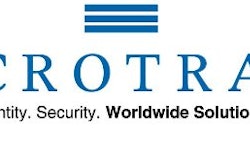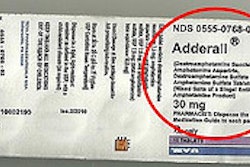
When the U.S. Supreme Court ruled on the Patient Protection and Affordable Care Act (PPACA) in late June, it set off a political firestorm. In this article, Healthcare Packaging focuses on what that decision potentially means to companies that develop, fill, label, and package pharmaceuticals, biologics, and medical devices.
"While the decision clearly provides fodder for politicians and other blowhards, its effect on most of health care's business sectors appears unlikely to alter the course of events," wrote Daniel R. Hoffman, Ph.D., in the July 5 Philly.com article, "How the Supreme Court's healthcare decision affects pharma."
Hoffman noted, "The manufacturing sectors such as pharma and devices will sustain both gains and losses, but nothing appears likely to alter industry fundamentals.…In short, Obamacare will create neither a boon nor a major threat for pharma. On the other hand, the industry's entire customer base and its needs are changing enormously for entirely different reasons, while pharma's response remains flatfooted. Instead the drug companies continue flogging products that seem beside the point. Obamacare will actually support some of those payer-provider initiatives to encourage cost-effective treatment patterns and quality measures. For that reason, the companies most apt to benefit from the law are those offering technology and practice methods to advance efficient, consistent quality of care."
In the June 28 article, "For businesses, Supreme Court ruling provides a measure of clarity in health care calculations," Robert Weisman of the Boston Globe made the following observations:
"Businesses hate uncertainty. So many were heartened that the Supreme Court ruling, largely upholding the national health care law, provided a measure of clarity in their health care calculations-though aspects of the clearer picture weren't entirely welcomed.
"Biotechnology executives applauded a provision creating a regulatory pathway for generic versions of biotech drugs while also protecting the original drug makers for a longer period. But medical device industry leaders said a tax that will help pay for the law will cost device makers $29 billion over the coming decade, sapping funds for research and hiring workers."
The Boston Globe article noted, "The reaction of Rob Friel, chief executive of Waltham laboratory tool maker PerkinElmer Inc., was typical of many executives. While he doesn't like the medical device tax, which will cost his company an estimated $5 million a year, he said that consideration was offset by the benefits flowing to medical technology companies from more people on the insurance rolls.
"'You're giving potentially 50 million Americans access to health care, so that will be positive for the industry because it creates demand for PerkinElmer diagnostic systems and other products,' Friel said. 'The other thing about the decision is it provides certainty.'"
Weisman's story added, "Michael R. Minogue, chief executive of Abiomed Inc., a Danvers maker of heart pumps and artificial heart, warned that the medical device tax-which he felt should not have been included in the health care law-would stifle innovation.
'The device tax in our mind is really not part of health care reform,' Minogue said. 'It's a policy decision, and we think it's bad policy because it's going to have a negative impact on jobs. It's about 15 percent of our research budget, it's about 10 percent of our heads. We are not going to add as many jobs as quickly as we would have, and we're not going to be able to fund research and development as quickly as we would have.'"
A June 28 online article in DeviceTalk, a blog for the Medical Device and Diagnostic Industry, pointed out the following: "It's also difficult to talk about the [PPACA] without mentioning the looming device tax. The consequences for medtech are significant, with the most obvious being the impact of the device tax to take effect in 2013,' explains Pete Masloski, principal at ZS Associates. 'While many companies would hope they could pass this additional tax on to their customers in terms of higher prices, most in the industry face a challenging competitive environment and a more price sensitive and sophisticated buyer who will not allow the price to be passed through. The result is that the tax will force companies affected to slash costs in any place the can, most likely in R&D and SG&A. Expect to see more announcements of companies restructuring to lower costs if the tax remains. Many industry leaders have already announced plans to do so (Stryker, Medtronic, etc.)."
Medical device tax concerns were also brought up by AdvaMed, whose member companies produce medical devices, diagnostic products, and health information. Adva Med president and CEO Stephen J. Ubl said, "AdvaMed supported goals of health care reform consistent with our long-held principles. "We have consistently opposed the $29 billion medical device tax because of its damaging effects on economic competitiveness, jobs and the research and development needed to find tomorrow's treatments and cures. The House has already voted to repeal the device tax, and we are heartened by the number of senators who have said they oppose the tax. We will continue to work with policymakers on both sides of the aisle to achieve this goal."
Read the full text of the PPACA, including its 10 Titles.
What's your take on the Patient Protection and Affordable Care Act? E-mail your thoughts anonymously here. Your name and contact information will not be published.
"While the decision clearly provides fodder for politicians and other blowhards, its effect on most of health care's business sectors appears unlikely to alter the course of events," wrote Daniel R. Hoffman, Ph.D., in the July 5 Philly.com article, "How the Supreme Court's healthcare decision affects pharma."
Hoffman noted, "The manufacturing sectors such as pharma and devices will sustain both gains and losses, but nothing appears likely to alter industry fundamentals.…In short, Obamacare will create neither a boon nor a major threat for pharma. On the other hand, the industry's entire customer base and its needs are changing enormously for entirely different reasons, while pharma's response remains flatfooted. Instead the drug companies continue flogging products that seem beside the point. Obamacare will actually support some of those payer-provider initiatives to encourage cost-effective treatment patterns and quality measures. For that reason, the companies most apt to benefit from the law are those offering technology and practice methods to advance efficient, consistent quality of care."
In the June 28 article, "For businesses, Supreme Court ruling provides a measure of clarity in health care calculations," Robert Weisman of the Boston Globe made the following observations:
"Businesses hate uncertainty. So many were heartened that the Supreme Court ruling, largely upholding the national health care law, provided a measure of clarity in their health care calculations-though aspects of the clearer picture weren't entirely welcomed.
"Biotechnology executives applauded a provision creating a regulatory pathway for generic versions of biotech drugs while also protecting the original drug makers for a longer period. But medical device industry leaders said a tax that will help pay for the law will cost device makers $29 billion over the coming decade, sapping funds for research and hiring workers."
The Boston Globe article noted, "The reaction of Rob Friel, chief executive of Waltham laboratory tool maker PerkinElmer Inc., was typical of many executives. While he doesn't like the medical device tax, which will cost his company an estimated $5 million a year, he said that consideration was offset by the benefits flowing to medical technology companies from more people on the insurance rolls.
"'You're giving potentially 50 million Americans access to health care, so that will be positive for the industry because it creates demand for PerkinElmer diagnostic systems and other products,' Friel said. 'The other thing about the decision is it provides certainty.'"
Weisman's story added, "Michael R. Minogue, chief executive of Abiomed Inc., a Danvers maker of heart pumps and artificial heart, warned that the medical device tax-which he felt should not have been included in the health care law-would stifle innovation.
'The device tax in our mind is really not part of health care reform,' Minogue said. 'It's a policy decision, and we think it's bad policy because it's going to have a negative impact on jobs. It's about 15 percent of our research budget, it's about 10 percent of our heads. We are not going to add as many jobs as quickly as we would have, and we're not going to be able to fund research and development as quickly as we would have.'"
A June 28 online article in DeviceTalk, a blog for the Medical Device and Diagnostic Industry, pointed out the following: "It's also difficult to talk about the [PPACA] without mentioning the looming device tax. The consequences for medtech are significant, with the most obvious being the impact of the device tax to take effect in 2013,' explains Pete Masloski, principal at ZS Associates. 'While many companies would hope they could pass this additional tax on to their customers in terms of higher prices, most in the industry face a challenging competitive environment and a more price sensitive and sophisticated buyer who will not allow the price to be passed through. The result is that the tax will force companies affected to slash costs in any place the can, most likely in R&D and SG&A. Expect to see more announcements of companies restructuring to lower costs if the tax remains. Many industry leaders have already announced plans to do so (Stryker, Medtronic, etc.)."
Medical device tax concerns were also brought up by AdvaMed, whose member companies produce medical devices, diagnostic products, and health information. Adva Med president and CEO Stephen J. Ubl said, "AdvaMed supported goals of health care reform consistent with our long-held principles. "We have consistently opposed the $29 billion medical device tax because of its damaging effects on economic competitiveness, jobs and the research and development needed to find tomorrow's treatments and cures. The House has already voted to repeal the device tax, and we are heartened by the number of senators who have said they oppose the tax. We will continue to work with policymakers on both sides of the aisle to achieve this goal."
Read the full text of the PPACA, including its 10 Titles.
What's your take on the Patient Protection and Affordable Care Act? E-mail your thoughts anonymously here. Your name and contact information will not be published.






















